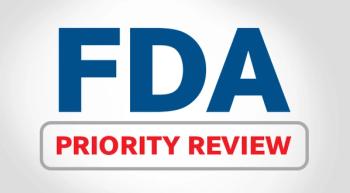
I felt like cancer had forced me to do other "uncomfortable" things instead of the bucket list I had chosen.

I felt like cancer had forced me to do other "uncomfortable" things instead of the bucket list I had chosen.

The Food and Drug Administration (FDA) granted priority review to a new supplemental biologics license application for Keytruda (pembrolizumab) to treat adult and pediatric patients with recurrent locally advanced or metastatic Merkel cell carcinoma, according to Merck, the agent’s manufacturer.

Researchers noted that melanoma diagnosis and treatment did not cause many women to put off becoming pregnant.

Individuals diagnosed with a high frequency of basal cell carcinomas, a common type of skin cancer, may be at an increased for developing an unrelated cancer, highlighting the need for additional clinical screening.

Research continues to drive the oncology field.

Patients who receive anti-PD-1 therapies may experience delayed cutaneous side effects like lesions, eczema or psoriasis, even after treatment has ended.

Clinical trials seek to discover new ways to attack the disease, limit metastasis and prevent recurrence.

Creating a medical family tree is helpful. If cancer is common, noting which branches include it can help inform decisions.

Understanding how melanoma spreads can lead to better outcomes. That's what researchers at UCSF aimed to do.

July is UV Safety Awareness Month. See three tips on how to protect yourself from harmful UV rays, which are the leading cause of skin cancer.

While having a career as a flight attendant allows individuals to travel the globe, exposure to carcinogens and frequent disruptions in circadian rhythms may increase cancer prevalence in these individuals, according to recent research published in the journal Environmental Health.

The FDA has approved the combination of the BRAF inhibitor Braftovi (encorafenib) and the MEK inhibitor Mektovi (binimetinib) for the treatment of patients with BRAF-mutant unresectable or metastatic melanoma, as detected by an FDA-approved test.

The FDA has accepted a supplemental biologics license application (sBLA) for the use of Keytruda (pembrolizumab) as an adjuvant treatment for patients with resected, high-risk stage 3 melanoma, according to Merck (MSD), the manufacturer of the PD-1 inhibitor.

In melanoma, combining two immunotherapies may lower costs and improve quality of life.

Novel immunotherapies either release the immune system’s parking brake or hit its gas pedal.

Oncolytic, or engineered, viruses that infect and kill cancer cells are showing promise.

Checkpoint inhibitors can be extremely effective for the right patients, but identifying who will benefit remains an imprecise science.

A new expert guideline for managing immunotherapy’s side effects has been released.

Study findings published in the Journal of the American Academy of Dermatology showed that once-daily aspirin use can increase the risk of melanoma in men — nearly double that of men who do not use aspirin each day.

Lynch syndrome – a hereditary condition that increases a person’s risk for developing several types of cancer – is common among people with microsatellite instability-high (MSI-H) tumors, linking it to several new cancer types, according to large genomic study results presented at the 2018 American Society of Clinical Oncology (ASCO) Annual Meeting.

Age shouldn't be a determining factor in giving a patient with melanoma immunotherapy. In fact, one study found that older patients actually do better on checkpoint blockades.

Recognize birthdays, but most importantly, keep hope, says a breast cancer and melanoma survivor.

The FDA has granted a priority review to a new drug application (NDA) for larotrectinib for the treatment of adult and pediatric patients with locally advanced or metastatic solid tumors with an NTRK gene fusion, according to Bayer and Loxo Oncology, the codevelopers of the pan-TRK inhibitor.

Recent research, conducted at NYU Langone Health and presented at the Oncology Nursing Society (ONS) Annual Congress, sought to find out how patients with melanoma perceived skin health education, and their willingness be involved in their own surveillance or a loved one’s.

One melanoma survivor offers advice for Skin Cancer Awareness Month.